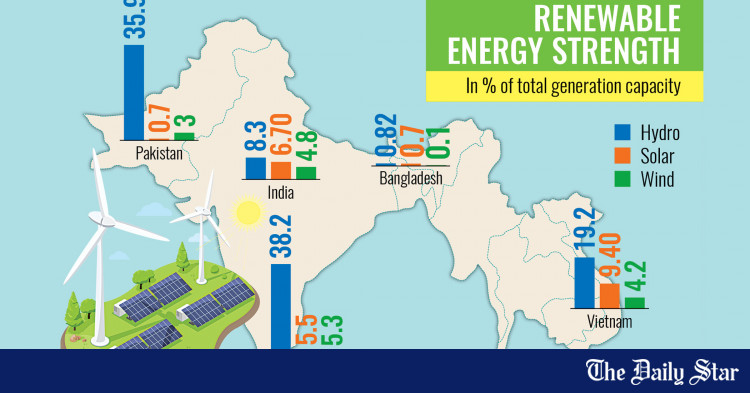
Bangladesh is currently facing significant challenges in its pursuit of renewable energy, producing only 0.8% of its total power from sustainable sources [670c5681]. This situation has been exacerbated by political changes; the Awami League government had previously made commitments to renewable energy before being ousted in August 2024. Following this transition, the interim government scrapped 42 power plant projects, including 37 renewable initiatives that had a combined capacity of 3,102 MW [670c5681]. As it stands, Bangladesh's total installed power generation capacity is 27,115 MW, with solar and wind energy contributing a mere 663 MW to this total [670c5681]. In comparison, neighboring Pakistan generates 3.7% of its 42,131 MW from renewable sources, while Vietnam leads the region in renewable energy adoption [670c5681]. Despite ambitious plans to produce between 6,000 and 16,000 MW from renewables by 2030, the lack of implementation agreements in new tenders is hindering investment opportunities [670c5681]. Additionally, the Power Development Board (PDB) currently owes Tk 21,000 crore to independent power producers, further complicating the landscape for renewable energy development [670c5681]. Experts Shahriar Ahmed Chowdhury and Imran Karim have raised concerns over land scarcity and the insufficient support from the government, which are critical factors affecting the growth of renewable energy in Bangladesh [670c5681]. As the country navigates these challenges, the future of its renewable energy ambitions remains uncertain.